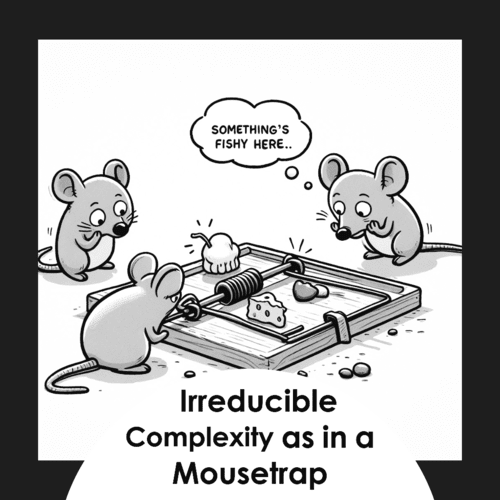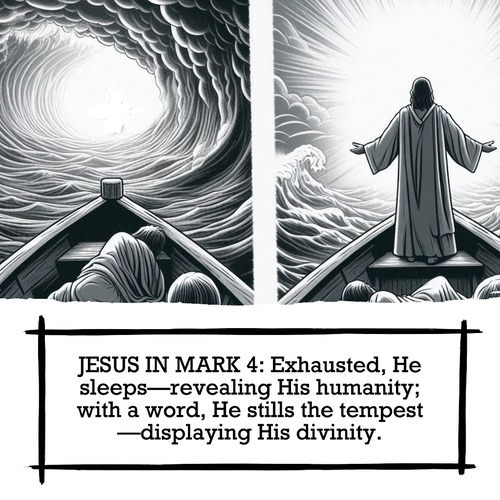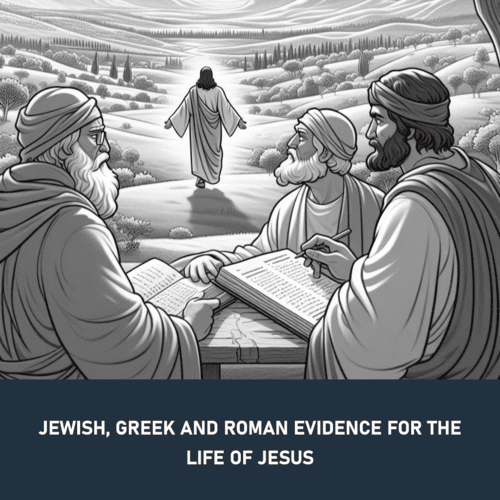If God Already Knows Everything, Why Does He Test Us?
The question haunts many a thoughtful believer: If God truly knows everything—past, present, and future—why does He test us? Why would an omniscient God need to see what we’ll do when He already knows the outcome? This isn’t a trivial puzzle. Scripture repeatedly describes God testing His people, from Abraham on Mount Moriah to Israel in the wilderness to our own trials today. Yet the same Bible insists God’s knowledge is perfect and complete. So what’s really happening when God tests His people?
GOD’S KNOWLEDGE IS EXHAUSTIVE, ETERNAL
Before we can understand divine testing, we must establish what Scripture teaches about God’s knowledge. The psalmist marvels, “You know when I sit down and when I rise up; you discern my thoughts from afar… Even before a word is on my tongue, behold, O Lord, you know it altogether” (Psalm 139:2-4). God declares through Isaiah, “I am God, and there is none like me, declaring the end from the beginning and from ancient times things not yet done” (Isaiah 46:9-10). God’s knowledge isn’t progressive—He doesn’t learn by observing events as they unfold. He knows exhaustively and eternally.
A crucial Reformed Insight deepens this understanding: God knows not just outcomes but the means to those outcomes. He doesn’t merely know that gold will be refined; He knows the precise temperature of the fire and the exact duration needed. He doesn’t just foresee His people will demonstrate faithfulness; He knows the specific trials that will occasion that faithfulness. The tests themselves exist within God’s eternal knowledge and sovereign plan. As Hebrews declares, “No creature is hidden from his sight, but all are naked and exposed to the eyes of him to whom we must give account” (Hebrews 4:13). Nothing surprises God. Nothing is hidden. The tests we face are no exception.
TESTING REVEALS REALITY TO US, NOT TO GOD
Here’s the key: God tests us to reveal truths to us, not to discover truths about us. Consider what follows:
We need to know our own hearts. Moses explained to Israel, “Remember the whole way that the Lord your God has led you these forty years in the wilderness, that he might humble you, testing you to know what was in your heart” (Deuteronomy 8:2-3). Notice carefully—the testing revealed to Israel what was in their hearts. God already knew. We humans are notoriously self-deceived. Jeremiah warns, “The heart is deceitful above all things, and desperately sick; who can understand it?” (Jeremiah 17:9). We confidently assume we’d remain faithful under pressure until pressure actually comes. Testing strips away our illusions and shows us the reality of our spiritual condition—whether our faith is genuine or counterfeit, whether our love for God outweighs our love for comfort.
Tests demonstrate what God eternally knew. When God tested Abraham by commanding him to sacrifice Isaac, Scripture records God’s response: “Now I know that you fear God, seeing you have not withheld your son” (Genesis 22:12). Did the omniscient God suddenly learn something? The Hebrew construction means “now it has been demonstrated” or “now it is made manifest.” What God always knew became historical reality. Abraham’s faith moved from the realm of divine foreknowledge into the realm of concrete demonstration. This matters immensely: God’s eternal knowledge needed to become embodied reality in space and time.
Trials produce proven character. James writes, “Count it all joy, my brothers, when you meet trials of various kinds, for you know that the testing of your faith produces steadfastness. And let steadfastness have its full effect, that you may be perfect and complete, lacking in nothing” (James 1:2-4). Notice the language of production and completion. Testing doesn’t inform God about our character; it actually creates mature character within us. Potential faith becomes actualised faith. Theoretical trust becomes experiential trust. The testing proves our faith genuine not to God (who knew all along) but in actual reality and to our own assurance.
We grow certain through endurance. One pastoral benefit often overlooked: we gain assurance of our own salvation by persevering through trials. When we’ve walked through the valley and discovered God’s sustaining grace, when we’ve been tempted and found Christ’s strength sufficient, we know our faith is real. This knowledge matters deeply for our peace and confidence. God ordains tests partly so we can know what He already knows—that we are truly His.
TESTING ALSO REFINES AND SANCTIFIES
Beyond revelation, testing serves as God’s ordained instrument to transform us. Reformed theology insists God ordains both ends and means—He doesn’t just decree that we’ll be holy; He uses specific means to make us holy.
The refining fire is necessary. Peter writes, “In this you rejoice, though now for a little while, if necessary, you have been grieved by various trials, so that the tested genuineness of your faith—more precious than gold that perishes though it is tested by fire—may be found to result in praise and glory and honor at the revelation of Jesus Christ” (1 Peter 1:6-7). The fire doesn’t inform the refiner about the gold; it purifies the gold. God uses trials to burn away our dross—our pride, our self-reliance, our love of the world, our hidden idols. The testing itself accomplishes the purification. God’s foreknowledge of our eventual holiness doesn’t make the process unnecessary; the process is how we become holy.
God uses means to achieve His purposes. This is vital Reformed theology: God’s sovereign knowledge and purposes don’t eliminate the means He uses to accomplish those purposes. He knew Israel would enter the Promised Land, but they still had to walk through the wilderness. He knew the Messiah would come, but He still ordained the specific lineage and circumstances. Similarly, He knows who will persevere in faith, but He uses actual trials as the means of producing that perseverance. The testing isn’t redundant; it’s instrumental.
Job emerged refined, not merely observed. Job declared in his suffering, “But he knows the way that I take; when he has tried me, I shall come out as gold” (Job 23:10). God knew Job’s faithfulness before Satan ever questioned it. Yet Job himself needed to go through the trial. He emerged with a deeper knowledge of God, greater humility, and matured faith. The testing refined him in ways that God’s mere foreknowledge of his character could never accomplish. Job needed the actual experience, not just God’s eternal knowledge of what that experience would produce.
Sanctification requires experience. We don’t become holy merely by God knowing we will be holy. We become holy through the actual, lived experience of trials endured, temptations resisted, and faith exercised under pressure. God’s foreknowledge encompasses the entire process—He knows both the beginning and the end, and all the necessary means between them.
WAIT, THERE’S MORE: TESTING GLORIFIES GOD PUBLICLY
There’s a third dimension often missed: testing creates a public record that glorifies God before witnesses—both human and angelic. God doesn’t test us merely for our private benefit; He’s writing a story that displays His glory to the watching universe.
Consider Daniel’s three friends thrown into Nebuchadnezzar’s furnace. God knew they’d remain faithful. But their actual trial—their refusal to bow, their calm testimony, their miraculous preservation—led the pagan king to declare, “Blessed be the God of Shadrach, Meshach, and Abednego… there is no other god who is able to rescue in this way” (Daniel 3:28-29). God’s glory was publicly magnified through the faithfulness they demonstrated.
Or consider Job again. Satan accused Job of serving God only for personal benefit. God could have simply declared, “Job is faithful regardless of circumstances.” But He allowed the actual test, and Job’s faithfulness under extreme suffering publicly vindicated God’s character and refuted Satan’s accusations. The book of Job stands as an eternal testimony to God’s wisdom and Job’s genuine faith—a testimony that required the actual trial, not merely divine foreknowledge.
Hebrews 11 recounts the “great cloud of witnesses”—faithful men and women who endured trials and demonstrated faith. Their stories inspire and instruct us millennia later. God’s glory shines through the historical record of His people’s faithfulness under fire. These weren’t theatrical productions where God merely acted surprised; they were real trials with real stakes that genuinely demonstrated the sustaining power of divine grace.
CONCLUSION: PURPOSE BEYOND INFORMATION-GATHERING
So why does an all-knowing God test us? Not to discover what He doesn’t know, but to reveal what He eternally knows—to us, to watching witnesses, and in the fabric of history itself. He tests to develop our character, not merely to observe it. He tests to refine our faith, using trials as the very means of sanctification He sovereignly ordained. He tests to glorify Himself publicly through our demonstrated faithfulness.
This understanding brings profound comfort. Our trials aren’t meaningless experiments where God waits to see what we’ll do. They’re purposeful, loving instruments in the hands of a sovereign Father who knows exactly what we need for growth, exactly how much we can bear, and exactly how to work all things together for our good and His glory.
He’s not surprised by our struggles. He ordained them—not to learn about us, but to transform us into the image of His Son.
WHY DOES GOD TEST US? RELATED FAQs
What does Abraham’s test reveal that matters for us today? Abraham’s willingness to sacrifice Isaac (Genesis 22) revealed the supremacy of his love for God over everything else—even over his beloved son and God’s own promises. This wasn’t just ancient history; it demonstrated a principle we all need: that genuine faith trusts God’s character even when His commands seem to contradict His promises. For us, Abraham’s test provides assurance that radical obedience is possible through faith. What’s more, it foreshadowed God’s own willingness to sacrifice His Son for us.
- How did Joseph’s trials refine him for his eventual purpose? Joseph endured betrayal, slavery, false accusation, and imprisonment—over a decade of suffering before his elevation in Egypt. These trials refined away any pride or entitlement from being Jacob’s favoured son and developed the humility, wisdom, and dependence on God necessary to steward power without corrupting. When he finally revealed himself to his brothers, Joseph could genuinely say, “You meant evil against me, but God meant it for good” (Genesis 50:20)—a perspective only gained through refined character.
- How did Dietrich Bonhoeffer’s imprisonment and execution reveal God’s sovereignty? Dietrich Bonhoeffer, the German pastor and theologian, was arrested in 1943 for his resistance to Hitler and executed in 1945, just days before the Allies liberated his camp. His imprisonment revealed that costly discipleship isn’t mere theory—it may require literally following Christ to death. The refining came through two years of prison where he ministered to fellow inmates, deepened his theology of suffering, and wrote profound reflections on Christian community and the Christian life. His martyrdom glorifies God by demonstrating that intellectual faith must become embodied obedience, and his writings continue inspiring millions to count the cost and follow Christ faithfully even when it leads to a Nazi gallows.
How did Corrie ten Boom’s concentration camp experience display God’s faithfulness? Corrie ten Boom and her family were imprisoned for hiding Jews during the Holocaust, with most family members dying in camps. The horror of Ravensbrück revealed evil’s depths but also revealed that God’s presence penetrates even a concentration camp—Corrie and her sister Betsie conducted worship services and shared Christ in that darkness. The refining came through learning to forgive the unforgivable, even her former captors. For decades after her release, Corrie’s testimony glorified God by proving His grace reaches into humanity’s darkest places, and that forgiveness is possible even for the worst atrocities when powered by God’s love.
- What did Richard Wurmbrand’s 14 years of Communist imprisonment demonstrate? Romanian pastor Richard Wurmbrand endured torture, solitary confinement, and attempts to break his faith in Communist prisons from 1948-1964. His suffering refined an already devoted faith into something luminous—he reported leading guards to Christ and conducting underground worship in prison. After his release and escape to the West, his testimony glorified God by awakening millions to the persecuted church’s reality and inspiring the founding of Voice of the Martyrs. His life proved that Christ’s presence in suffering is not merely a theological concept but an experienced reality.
- How has Joni Eareckson Tada’s paralysis served God’s purposes? Joni’s diving accident at age 17 left her a quadriplegic, initially driving her to suicidal despair—revealing the depth of despair that suffering can bring. Over decades, God refined her through this unchanging trial, developing deep theology, artistic gifts, and passionate advocacy for the disabled. Her worldwide ministry, Joni and Friends, has glorified God by demonstrating that disability doesn’t diminish human dignity or usefulness in God’s kingdom, and that His grace truly is sufficient even in permanent suffering. Millions have encountered Christ’s sufficiency through her testimony who might never have heard it from someone whose life looked “easier.”
What does Nick Vujicic’s life without limbs reveal about God’s purposes? Nick Vujicic, born without arms or legs, contemplated suicide as a child, revealing humanity’s deep need for purpose beyond physical wholeness. God refined him by showing his “disability” was actually his platform—people listen to someone without limbs in ways they wouldn’t to someone they consider “normal.” His life glorifies God spectacularly: he’s addressed millions worldwide, married, fathered children, and demonstrated that abundant life comes from Christ, not circumstances. His very existence challenges the culture’s assumption that certain lives aren’t worth living.
WHY DOES GOD TEST US? OUR RELATED POSTS
Editor's Pick

Do Christians Need Holy Shrines? Why the Reformed Answer Is No
Walk into a medieval cathedral and you'll encounter ornate shrines, gilded reliquaries, and designated "holy places" where pilgrims gather to [...]

I Want To Believe, But Can’t: What Do I Do?
"I want to believe in God. I really do. But I just can't seem to make it happen. I've tried [...]

BC 1446 or 1250: When Did the Exodus Really Happen?
WHY REFORMED SCHOLARS SUPPORT THE EARLY DATE Many a critic makes the claim: “Archaeology has disproven the biblical account [...]

Does God Know the Future? All of It, Perfectly?
Think about this: our prayers tell on us. Every time we ask God for something, we’re confessing—often without realising it—what [...]

Can Christian Couples Choose Permanent Birth Control?
Consider Sarah, whose fourth pregnancy nearly killed her due to severe pre-eclampsia, leaving her hospitalised for months. Or David and [...]

Bone of My Bones: Why Eve Was Created From Adam’s Body
"This at last is bone of my bones and flesh of my flesh!" Adam's joyful exclamation upon first seeing Eve [...]

Is Calvinism Fatalism in Christian Disguise? Think Again
We hear the taunt every now and then: "Calvinism is just fatalism dressed up in Christian jargon." Critics argue Reformed [...]

Can Churches Conduct Same-Sex Weddings?
In an era of rapid cultural change, churches across America face mounting pressure to redefine their understanding of marriage. As [...]

Gender Reassignment: Can Christian Doctors Perform These Surgeries?
In the quiet of a clinic, a Christian physician faces a challenging ethical question. A patient sits across the desk, [...]

‘What Sorrow Awaits You Who Are Rich…’: What Does Jesus Mean?
The words hang in the air like a sword over comfortable Christianity: “What sorrow awaits you who are rich, for [...]
SUPPORT US:
Feel the Holy Spirit's gentle nudge to partner with us?
Donate Online:
Account Name: TRUTHS TO DIE FOR FOUNDATION
Account Number: 10243565459
Bank IFSC: IDFB0043391
Bank Name: IDFC FIRST BANK






